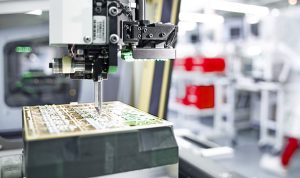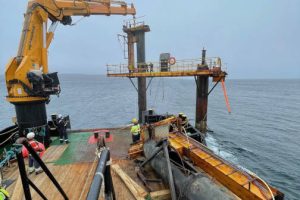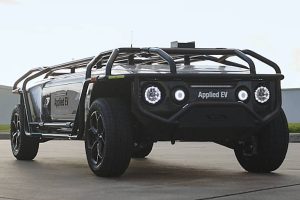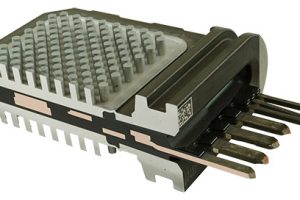 Power module companies Semikron and Danfoss subsidiary Danfoss Silicon Power have completed their merger to form Semikron-Danfossmerge, majority owned by Danfoss.
Power module companies Semikron and Danfoss subsidiary Danfoss Silicon Power have completed their merger to form Semikron-Danfossmerge, majority owned by Danfoss.
Of the two family-owned companies, Semikron is bringing in 3,000 staff from 24 subsidiaries worldwide, and there will be 500 from Danfoss Silicon Power.
Where did Danfoss get resources to buy the significantly larger company?
“We can’t go into the specifics of the how the deal is financed, but Danfoss is a very solid company with a very strong credit rating and years of positive cash-flow,” a spokesman told Electronics Weekly.
And what plans does the larger company have?
“Semikron-Danfoss will leverage its core business in industrial and renewable power module applications to target a leading position in automotive power modules, and will drive the technology shift into silicon carbide solutions in both industrial and automotive applications,” according to the company.
It has again emphasised that it will retain its two main German locations: Nuremberg and Flensburg, adding: “The joint business will be operated in the accustomed manner, retaining existing production facilities, customer and supplier relationships and distribution channels.”
However, while it will have multiple sites, it will have a single leadership team. Former Danfoss Silicon Power general manager Claus Petersen will be CEO while Karl-Heinz Gaubatz, formerly Semikron CEO, will be CTO until his retirement at the end of this year.
Board chairman will be overall Danfoss president and CEO Kim Fausing, who said: “Electrification is one of the main drivers in the green transition, and Semikron Danfoss technologies are key components within industry, renewable energy, and automotive traction. Combining more than 90 years of technology leadership in power module packaging, we have the passion, competences, technologies and commitment to become the preferred decarbonising partner for customers.”
As well as manufacturing modules from die bought “from multiple suppliers globally”, the company will continue to have its own source of die from its, formerly Semikron, fab in Nürnberg.
Late in July, Semikron was the subject if a significant cyber attack, with which it was still dealing in mid-August. “The cyber-attack has no impact on the merger process,” it said at the time.
 Electronics Weekly Electronics Design & Components Tech News
Electronics Weekly Electronics Design & Components Tech News



